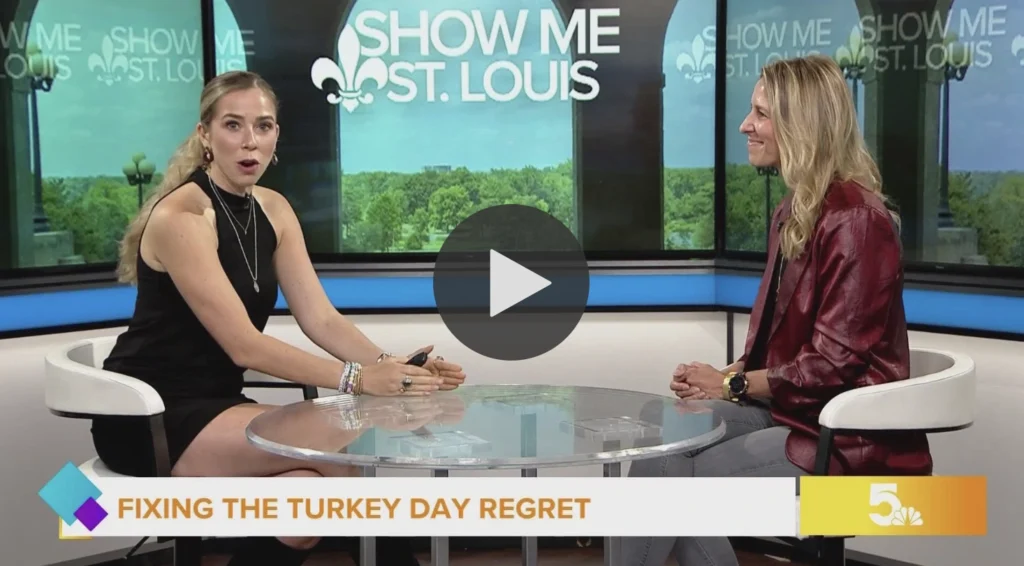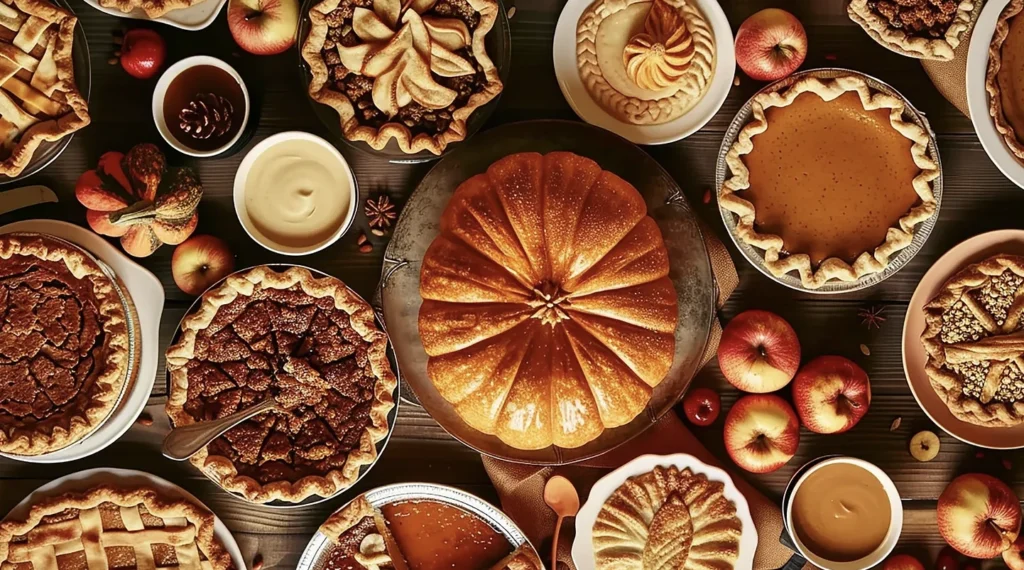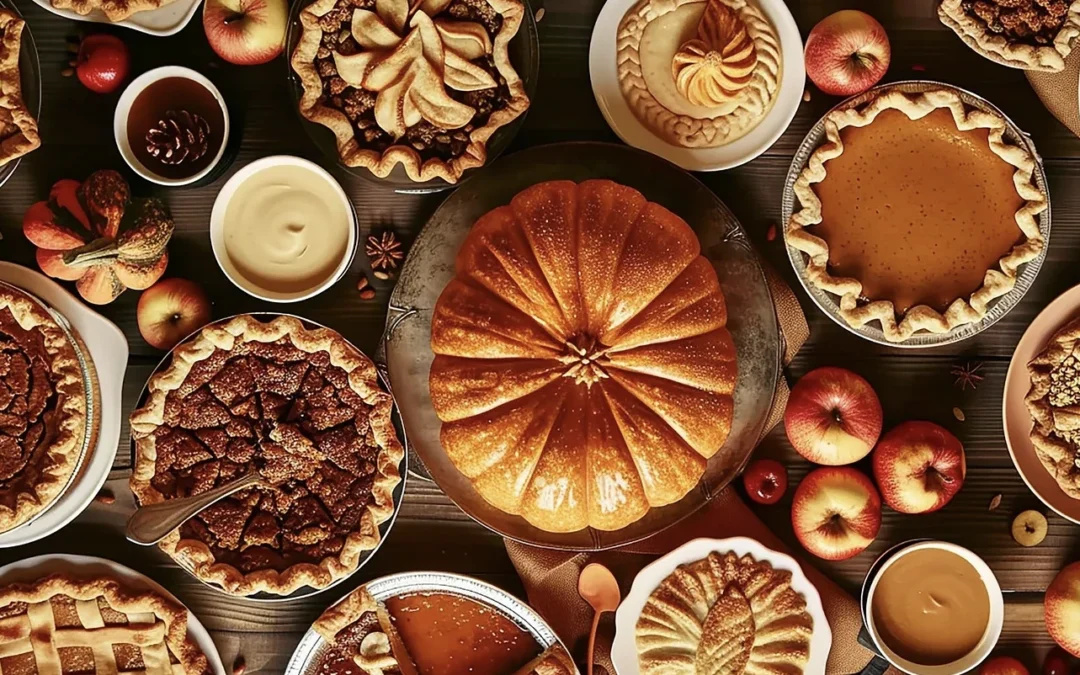I recently did a taped interview for a local St. Louis TV station which aired on Black Friday about holiday food guilt. The topic was a familiar one: “How to deal with post-Turkey Day overeating.” During the segment, I stuck to three main points, a strategy I learned years ago in media training. It’s a simple idea—people remember three key takeaways best in a quick three-minute segment. Plus, it helps keep me on track…

As I prepared my responses, I realized that these three points go beyond Thanksgiving. They’re relevant for any situation where we might feel regret or wish we’d made different choices. Might I also say, Thanksgiving is about friends and family, but it’s also about the FOOD! I hope you enjoyed every bite.
1. Yesterday is Over—It’s All in the Story You’re Telling Yourself
Many of my clients share that they feel a deep sense of guilt after overeating—sometimes replaying the same meal in their minds for hours or even days. When they open up about this, I often ask, “How are you feeling right now?” That meal, the one that’s causing so much guilt, is in the past. If you woke up feeling fine, any discomfort you have now is probably more about the story you’re telling yourself: I overdid it. Why did I have three desserts? Now I need to overcompensate with a marathon of Turkey Day Peloton workouts.
But that’s not your true, wise self speaking—it’s the voice of diet culture, shaped by years of conditioning to be hard on ourselves. Giving those thoughts power only deepens the cycle of guilt and shame.
I often turn to Kristen Neff’s work in self-compassion. Her three-part model encourages us to start with “awareness.” The first step in offering ourselves compassion is to recognize the mental chatter and how we’re talking to ourselves. Acknowledge those thoughts, but don’t get caught up in them. Remember, they don’t define you or your relationship with food—they’re just thoughts.
2. Don’t Punish Yourself with Restriction
A common reaction to overeating is to restrict the next day—eating only salads, skipping meals, or otherwise “being extra good.” But this cycle of overeating and then restricting often leads to cravings and feelings of deprivation, which can set you up to overindulge again. It’s a vicious loop.

When we overdo it, whether with food, drinks, or anything else, there’s no need for punishment. Instead, treat yourself gently and nourish your body. Kristen Neff’s second element of self-compassion is “common humanity”—remember that you’re not alone. You’re definitely not the only person who ate more than usual on Thanksgiving. We’re all in this together.
Her third component is “self-kindness.” I actually prefer the term self-respect. Show yourself respect after you “mess up.” Offering yourself kindness or respect is not only what you deserve, but it also helps you move forward.
3. Focus on Your Future Self
Instead of dwelling on the past, shift your attention to how you can support your future self. Maybe that looks like meal planning for the week ahead, making thoughtful choices to set yourself up for success. In other scenarios, it might mean taking a moment to consider how you’ll handle a similar situation in the future—perhaps by reaching out for support or having a plan in place.
Supporting your future self doesn’t have to be complicated. It’s about being proactive, gentle, and kind to yourself, recognizing that you’re learning and growing as you go.
We all have times in which we wish we’d done things differently. What matters is how we move forward—with awareness, compassion, and self-respect.
Happy Holidays, friends!

